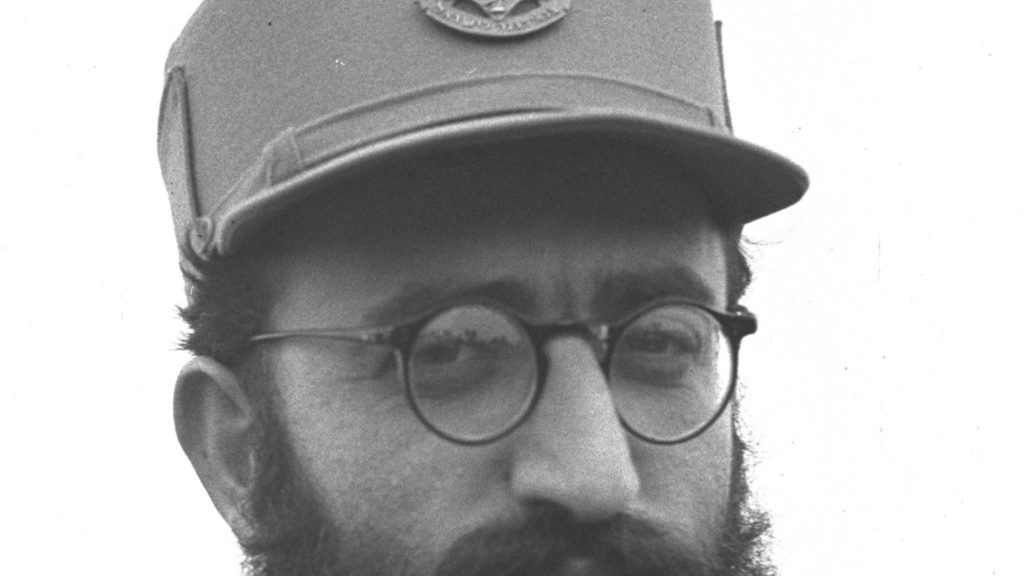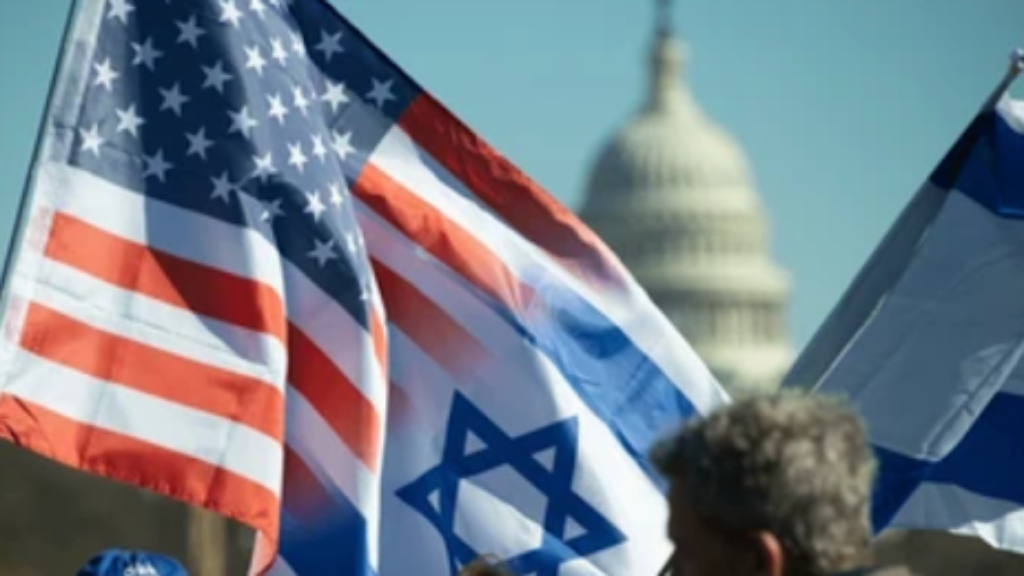The First Religious Paratrooper
Rabbi Shlomo Goren’s autobiography, With Might and Strength, tells the story of a precocious rabbinical student who decided to join the Israeli army and eventually became Chief Rabbi of Israel. By applying his vast knowledge of Torah to the problems of war and governance facing the nascent Jewish state, Goren showed that Halakha could address these challenges, and that Orthodox Jews could join the army and remain observant. Goren’s bravery on the battlefield helped Jews win back sovereignty over the holy sites in Jerusalem and Hebron, and his daring expedition into enemy territory recovered the bodies of fallen soldiers, allowing them proper Jewish burials.
The creation of Israel was an unprecedented Jewish accomplishment, but it was emphatically a secular one: Israel’s founders based the new state on secular laws rather than Halakha. Many of them doubted that Halakha was relevant to the realities of modern war and governance. It was in part for this reason that many observant Jews distrusted the state and didn’t want to serve in the army. Goren’s pathbreaking decision to join the army and his rise through the ranks set a powerful example that countered this distrust and inspired many orthodox Jews to enlist. His numerous halakhic rulings on matters pertaining to war helped demonstrate that military service and religious observance could be reconciled. Yet it was not only his halakhic knowledge, but his personal perseverance, that were key to achieving this reconciliation.
One particularly important ruling occurred during the Israeli War of Independence. Goren had learned that the Jordanians would be attacking Jerusalem with tanks. He realized that the only way to defend the city would be by constructingtrenches on the roads during Shabbat. Although physical labor of this sort is usually prohibited, Goren turned to a passage in the Talmud depicting Jews defending their property on Shabbat to prove that in this case an exception could be made. Despite facing opposition from other rabbis, Goren persevered and won out. The attack was halted and Jerusalem was saved.
In another instance, the 890th Paratrooper Battalion refused to make their field kitchen kosher, to set up a synagogue, or to take a break from training on Shabbat. Goren insisted to Ariel Sharon, their commander, that the army needed to set up these accommodations so that religious men would feel comfortable joining the unit. Sharon made Goren a deal: if he could find even a single religious man to join the battalion, the army would make all the necessary accommodations. Goren promptly volunteered himself, leaving Sharon flabbergasted. Goren was soon the first religious paratrooper.
Goren persevered through more than religious disputes: he was entirely unafraid to put himself at physical risk. Tasked with recovering the bodies of IDF soldiers killed in enemy territory in the War of Independence, he made a deal with the Egyptians and Jordanians. Under a ceasefire, Goren traveled to various battlefields, accompanied by enemy officers and soldiers, to recover, identify, and return the bodies of the fallen Israeli soldiers. However, his trip into Jordanian territory went awry when he found himself unable to cross the border due to a minefield. The Jordanian government refused to let Goren travel through the mine-free checkpoint, and his escort warned him that if he did not cross the border, the deal between their governments would be canceled, and Goren would have to return empty-handed. Unperturbed, Goren decided to cross the minefield on his own. He danced around the mines and got to the other side successfully. He brought back thousands of soldiers to be buried and honored in Israel, allowing the families of the dead some closure.
Goren’s resolve and stubbornness allowed him to succeed where many others would have failed. After he became a paratrooper, the 890th Battalion opened itself to religious soldiers. Under Goren’s supervision, the paratroopers took the holy sites of Jerusalem and Hebron for the Jewish people. Goren’s unique achievements as a rabbi did not occur only because of his knowledge (which many other rabbis also had), but because of his perseverance in the face of obstacles.
Suggested Reading

The First Religious Paratrooper
Rabbi Shlomo Goren’s autobiography, With Might and Strength, tells the story of a precocious rabbinical student who decided to join the Israeli army and eventually became Chief Rabbi of Israel. By…

The Ascent of the Fallen
BY SARAH BARON We are lost and foundFree yet also constrainedMany fall by the dayLost ones float up to the skyMore and moreInnocent livesLone soldiersOff the plane they emerge as…

Living A Double Life
BY GALIT ALSAYGH The Tanakh has a stance on Jews in golah, exile. To assimilate or to isolate? To practice or to neglect? To be active or to be passive?…

Babel and Job: Where Human Certainty Meets Divine Truth
BY BENNY MARMOR The narrative of the Tower of Babel only lasts nine verses and is sandwiched between two genealogies of the sons of Noah, yet it is one of…